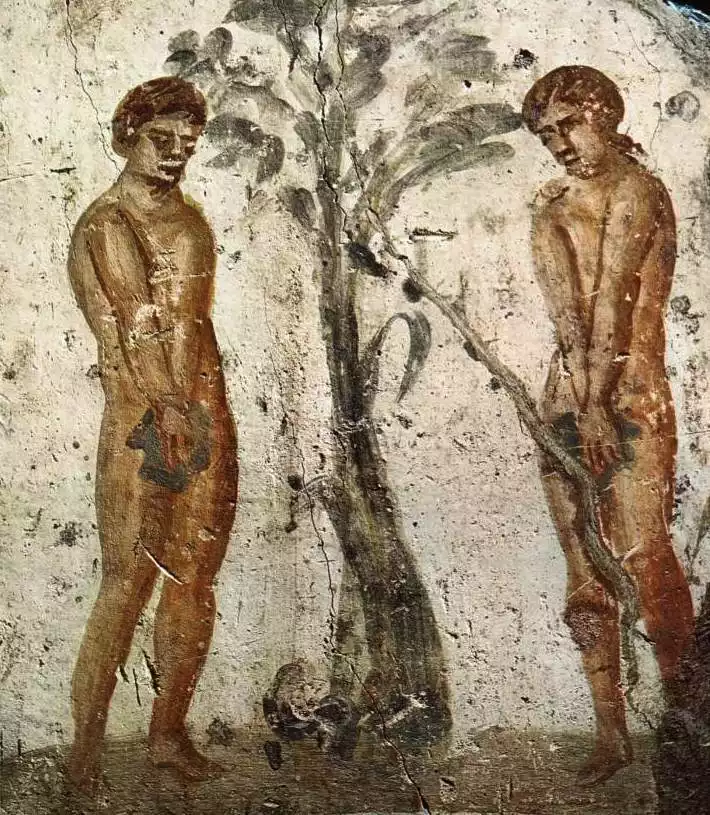
Adam and Eve, traditionally believed to be the first humans created by God, hold a significant place in Christian theology and mythos. Their story, primarily chronicled in the Book of Genesis, has been a subject of profound religious and cultural importance. Although the exact dates of their lives remain shrouded in the realms of theological speculation, their narrative stands as a cornerstone in understanding humanity’s origin and its inherent struggles.
Creation of Adam and Eve
In the Christian theological landscape, Adam and Eve’s story begins with their divine creation. According to Genesis, Adam was the first human, formed from the dust of the ground, into whom God breathed the breath of life. This act of creation established Adam as a living being, unique in his connection to both the earth and the divine.
The narrative progresses with the creation of Eve. God, recognizing Adam’s need for companionship, created Eve from one of Adam’s ribs, signifying an intimate and inseparable bond between them. This creation story underscores not only the shared humanity of Adam and Eve but also their distinct roles in the theological understanding of human nature.
Adam and Eve’s existence in the Garden of Eden, a paradisiacal place of harmony with God, symbolizes the ideal state of human existence. Their life in the garden, characterized by direct communion with God and a lack of suffering, represents a state of innocence and purity. The theological implications of this period in their lives are profound, as it reflects humanity’s original intended state before the fall into sin.
The Fall and Its Consequences
The pivotal event in Adam and Eve’s narrative is the fall, a moment that fundamentally altered the course of human history. The serpent’s temptation and the subsequent eating of the forbidden fruit from the Tree of Knowledge of Good and Evil mark this turning point.
This act of disobedience, often referred to as the Original Sin, led to a series of catastrophic changes for Adam and Eve. Their eyes were opened to good and evil, bringing about a newfound awareness of their nakedness and vulnerability. This awareness signifies a loss of innocence and a departure from their previously unblemished state.
The fall had immediate and far-reaching consequences. Firstly, it resulted in Adam and Eve’s expulsion from the Garden of Eden, a physical and spiritual separation from the direct presence of God. This exile symbolizes the human condition of estrangement from the divine, a theme central to Christian theology.
Additionally, the fall introduced pain, labor, and mortality into human existence. Adam’s punishment entailed toiling the ground from which he was taken, signifying a life of physical labor and struggle. Eve’s punishment involved pain in childbirth and a complex relationship with Adam, reflecting the difficulties inherent in human relationships and familial structures.
The story of Adam and Eve, therefore, sets the stage for the fundamental Christian doctrines of sin, redemption, and the human longing for reconciliation with God. Their narrative, while rooted in theological tradition, continues to resonate across centuries, shaping the understanding of human nature and destiny in Christian thought.
Life After the Fall
Post-Eden, Adam and Eve’s life represents the human journey of resilience and adaptation. The narrative portrays their struggles to survive and adapt to a world vastly different from Eden. They faced the harsh realities of life outside paradise, from tilling the hard soil to coping with the elements. This chapter in their story is emblematic of humanity’s enduring spirit in the face of trials and tribulations.
Their life after the fall also marks the beginning of human procreation. Adam and Eve had children, the most notable being Cain, Abel, and Seth. These offspring set the stage for the human story, each playing a pivotal role in the unfolding narrative of mankind. The complexities of their relationships and the subsequent events highlight themes of jealousy, fraternal strife, and the ongoing consequences of the fall.
Legacy and Theological Significance
Adam and Eve’s legacy extends far beyond their immediate story. They are seen as the progenitors of the human race, and their actions in the Garden of Eden have had a lasting impact on Christian theology and the understanding of human nature. The concept of Original Sin, rooted in their disobedience, forms a cornerstone of the Christian doctrine of sin and redemption.
The narrative of Adam and Eve also sets the foundation for the Christian understanding of salvation history. Their fall necessitated a divine plan for redemption, ultimately culminating in the life, death, and resurrection of Jesus Christ. Thus, their story is intrinsically linked to the Christian message of hope and salvation.
In conclusion, Adam and Eve’s narrative, from their creation to the fall and beyond, offers profound insights into the Christian understanding of humanity, sin, and redemption. Their story, while ancient, continues to resonate with themes of disobedience, consequences, and the enduring hope for divine grace. Adam and Eve remain central figures in Christian theology, symbolizing both humanity’s fallibility and the perpetual quest for reconciliation with the divine.
References
- BBC Religion & Ethics. “Christianity: Original Sin.” Accessed December 25, 2023. bbc.co.uk.
- JSTOR. “Title of the Article.” Accessed December 25, 2023. jstor.org.
- Kugel, James L. The Bible as It Was. Belknap Press, 1997.
- The Gospel Coalition. “The Lost World of Adam and Eve: A Review Essay.” Accessed December 25, 2023. thegospelcoalition.org.
- Washington University in St. Louis. “Can Science Prove Adam & Eve Really Existed?” Accessed December 25, 2023. source.wustl.edu.
